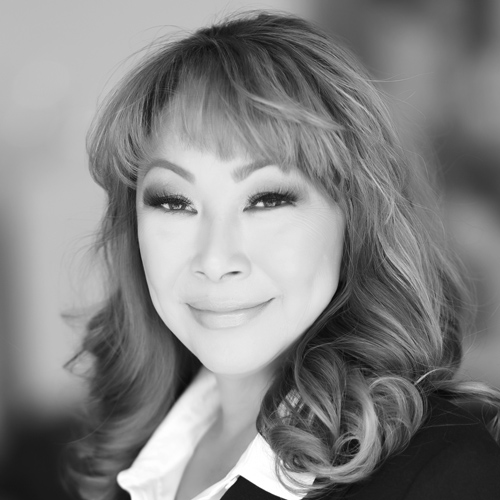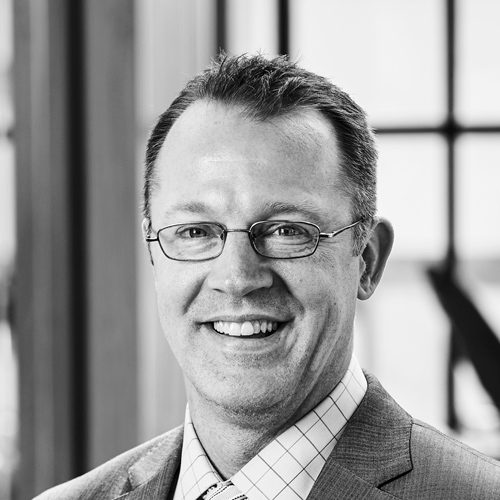Wesley Dupont prides himself on building strong relationships. When he was hired in 2003 to help take Allied World Assurance Company—a global provider of innovated property, casualty, and specialty insurance and reinsurance solutions—public, he was an experienced securities and public companies lawyer. But during that time, he had mostly been in private practice and predominantly worked as part of a team. Moving in-house required a new approach: becoming a business partner.
In his law firm days, Dupont primarily worked with a team of lawyers. Now, as executive vice president and general counsel, he works directly with individual business clients who focus more on the big picture rather than on the particularities. “That business client doesn’t care what your indemnification provision says, and they don’t care that a comma isn’t in the right place,” he says. These details are important, but business leaders expect lawyers to have the knowledge to get the details right, Dupont says. “As I quickly learned, speed and solutions are the two things that business people want and need most,” he adds.
This solutions-oriented approach encourages colleagues in other departments to see the legal department as an asset, rather than as an obstacle, and to include Dupont’s team in the decision-making processes. “We’re not going to just say, ‘No, you can’t fix it,’ or ‘there is no solution,’” Dupont says. “We’re going to put some options for consideration on the table.”
Dupont staffs his department with this partnership in mind. When he joined the company in 2003, he was one of four employees in the legal department and one of two lawyers. Now, there are forty-eight people in the legal and compliance department globally. “I’ve always found that we’re able to find smart and talented people,” Dupont says. “What I’ve focused on from day one was trying to find people who were collegial and team-oriented.”
Allied World was founded in 2001 as a joint venture of AIG, Goldman Sachs, Chubb, and Swiss Re. These four shareholders owned the company until 2006, when it had its initial public offering. “From a company perspective, it meant the beginning of independence from its founders,” Dupont explains. “From a legal and compliance standpoint, it meant a completely different way of operating the business.”
The company had been preparing to go public from its inception, but making the shift required significant changes. Dupont worked with CEO Scott Carmilani to find independent board members and to create oversight committees within the board. He also led the team in implementing the policies and codes that the New York Stock Exchange and SEC required, such as codes of ethics and whistle-blower policies. “There was a tremendous amount of documentation that had to be created and then rolled out, implemented, and made part of Allied World,” Dupont says.
By the time Allied World went public, the company had launched platforms in the United States and Europe. At the time, the company was headquartered in Bermuda, and although there were many advantages to staying, there were greater advantages to moving. Dupont led the process, meeting with business and economic development people in jurisdictions around the world. In addition to the business and financial implications of the move, he considered social concerns. “What was the schooling like?” he asked. “Could employees buy a home?” Dupont and fellow Allied World leaders considered more than twenty jurisdictions before deciding to redomesticate to Zug, Switzerland, in December 2010.
Although Dupont had previously worked for two international law firms, he was not an international lawyer. “If you talk to a New York lawyer who works for a law firm and has international clients, then they’ll say they’re an international lawyer,” he says. “But they’re really advising an international company on US law.” Allied World operates and has offices in ten countries, and Dupont has become well-versed in the laws and regulations of each one. “You begin to learn the actual differences between one country and another—both from a legal perspective and regulatory perspective,” he adds.
In addition to the legal and regulatory differences between countries, there are cultural differences, which manifest themselves in the company’s office cultures. There are differences even among offices in the United States. In 2008, Allied World acquired Darwin Insurance, which was headquartered in Farmington, Connecticut. “In the summers, they had a thing called flip-flop Fridays, when staff could dress down and wear flip-flops to work,” Dupont says. “To this day, we still have flip-flop Fridays in that office.”
In 2009, Dupont took over global claims and human resources. His responsibilities are wide-ranging, but they all have ties with his work as general counsel. He has collaborated closely with human resources managers to design employee compensation plans and related public disclosures for the company since it went public. The legal and compliance department drafts the insurance policy forms, so they have a sense of what should be covered when a claim is filed. For those portions of human resources and claims that Dupont isn’t familiar with, he collaborates with leaders within each division. All of these changes have shaped Allied World into what it is today, just as they’ve helped shape Dupont’s continually evolving role at the company. And despite all of the changes Dupont has already seen at the company, there are more on the way.
In July 2017, Allied World was acquired by Fairfax, a Canadian holding company, for roughly $4.9 billion. “It’s certainly rewarding to have gone from the first day of seeing Allied World as a publicly traded company to Allied World being a part of a much larger public company,” Dupont says.
Allied World will still operate independently and under the same name and leadership within Fairfax, but the company will gain additional expertise from Fairfax’s other subsidiaries. Fairfax owns more than twenty insurance and reinsurance companies around the world. “Their corporate philosophy is to let those companies run independently, not to integrate them,” Dupont explains. “They view the integration process as destroying some value and culture.”
The acquisition introduces new opportunities for partnership—this time with Fairfax’s other subsidiary companies. “I think we’re going to be able to partner on projects where both companies can achieve something more than they could have on their own,” Dupont says.
Baker McKenzie Zurich would like to congratulate Wesley Dupont and his entire team for their achievements. We had the privilege to be Allied’s Swiss counsel for many years and would like to thank Wesley for the confidence he has shown in us during that time.
Carlton Fields congratulates Wesley DuPont on this well-deserved honor and for his steadfast leadership. We are tremendously grateful for our longtime relationship with Allied World Assurance Company. It is our mission to help our insurance clients throughout the nation meet their goals, challenges, and aspirations. To learn more about our firm, please visit carltonfields.com.

